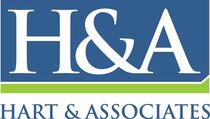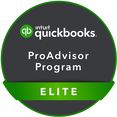|
© Info40555 | Dreamstime.com - Accounting On Blackboard Photo
Successfully running a business requires some knowledge of accounting and related terminology. Even when you outsource your accounting, as a business owner, you need to be able to review, discuss and understand the reports you receive from your accountant. This knowledge will support successful business planning and growth.
Some key terms you will want to familiarize yourself with are below: Fiscal Year Most companies report their results on a calendar year, from January 1 through December 31. Some companies use a different year for reporting, and that’s called a fiscal year. For example, Intuit’s fiscal year runs from August 1 to July 31. A nonprofit commonly runs from July 1 to June 30. The word fiscal alone refers to government or public revenues and expenditures. A fiscal year can also be considered the period where companies report their financial results to the public. Budget Most companies sit down once a year and plan what they intend to spend. This set of numbers is a budget. It is prepared in income statement format which includes planned revenue and expenses. It can be done for a year, monthly or both. A common report that compares budget to actual figures is the Income Statement Comparison to Budget which includes columns for month and year-to-date actual, budget, and variance (the difference). Forecast While a budget is a longer term plan, a forecast is an attempt to predict the short-term future. Forecasts can be made for cash flow, predicting your bank account balance, or can be focused on potential profit for a period. A forecast is created by enumerating current and expected short-term cash commitments. General Ledger A general ledger is a fancy word for your accounting books. It’s also a very specific report that lists each account within the chart of accounts, beginning balances, the activity of each account for a particular period of time, and ending balances. It includes both balance sheet accounts, such as cash, accounts receivable, and accounts payable, and income statement accounts, such as revenue and expenses. Fixed Asset A fixed asset is a special type of asset that includes items such as land, vehicles, furniture, buildings, office equipment, plants, and machinery. Fixed assets cannot easily be converted into cash (cash equivalents are termed current assets) and they must last longer than one year. They are physical or tangible (as opposed to intangibles such as patents and trademarks). Depreciation Most fixed assets except land depreciate in value over time. For example, when you drive a new car out of the lot, no one will give you what you just paid for it. This reduction in value over time is recognized on accounting books by recording depreciation. Since assets need to be recognized at market value, depreciation is an estimate of this adjustment. Depreciation becomes an expense and reduces the value of the fixed asset. Unlike most other transactions, cash is not affected when recording depreciation. Accrual There are two ways to keep books when it comes to the timing of how items are recorded: the cash method and the accrual method. Let’s invoke Popeye the Sailor Man’s friend Wimpy who always says, “I’ll gladly pay you Tuesday for a hamburger today.” Let’s say today is the Friday before this famous Tuesday. If you are using the cash basis method, you would record the entire transaction on Tuesday, when you get the cold hard cash. If you are using the accrual basis, you would have two entries: one on Friday to record the sale to accounts receivable and one on Tuesday to zero out the receivable and increase cash. It’s the same net effect; the only difference is in the timing. Most small businesses that extend credit keep their books on an accrual basis so they can keep track of everything. Most taxes are paid on cash-basis books, requiring adjusting entries at year end that reverse at the beginning of the year. Balance Sheet A balance sheet is a very common report of all of the business’s account balances as of a specific date, such as December 31. These accounts include cash, receivables, fixed assets, liabilities, equity and others. Journal Entry A journal entry is usually an adjustment that is made to the accounting books. The result is that some accounts increase and others decrease. In theory, every transaction made to a company’s books is a journal entry. When you write a check and it’s cashed, cash goes down and an expense is increased. When you receive a payment, cash goes up and revenue goes up. Each of these transactions is a journal entry. Do you feel a bit smarter? I’m not sure how exciting this is for cocktail table talk, but hopefully you feel smarter when it comes you’re your business’s accounting function.
Slack is a relatively new collaboration tool that is designed to cut down on emails among team members and boost productivity. It provides messaging by topic or channel so that threads of communication can be streamlined and accessed easily. One of my clients introduced me to Slack and I have found it to been very convenient and useful.
Slack is a searchable messaging portal that allows document sharing from a team member’s computer or integrated apps such as Google Drive, DropBox and more. Slack has 300,000 paid accounts and 1.1 million active users per day. There is a free option. Once all your team members are in Slack, they can create channels and have conversations within the channels. Channels can be organized in any way you want, such as by:
Channels can be made public within your team or private. You can also direct-message anyone else in the group so two or more team members can have a private talk. Conversations can be followed on any device – computer, tablet, and phone. You can add documents to the message stream so team members can review and make comments. These documents can come from your local computer or one of the 900 integrated apps. And the messages are searchable to boost efficiency. If you are looking for a tool that reduces the number of emails across team members, try out Slack at www.slack.com. |
AuthorSuccessfully meeting the challenges inherent to new and smaller businesses provides me with a special type of satisfaction. Archives
February 2022
Categories
All
|


 RSS Feed
RSS Feed







